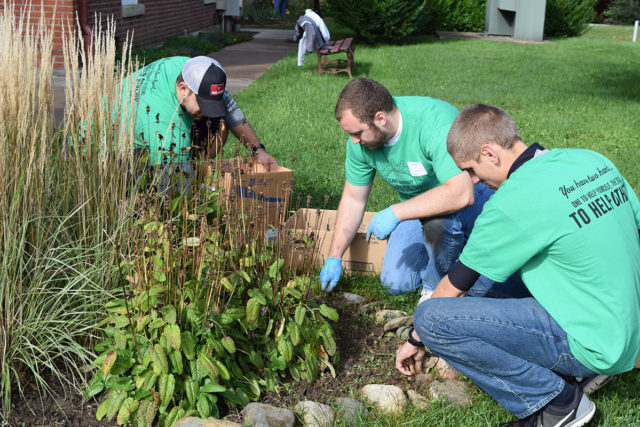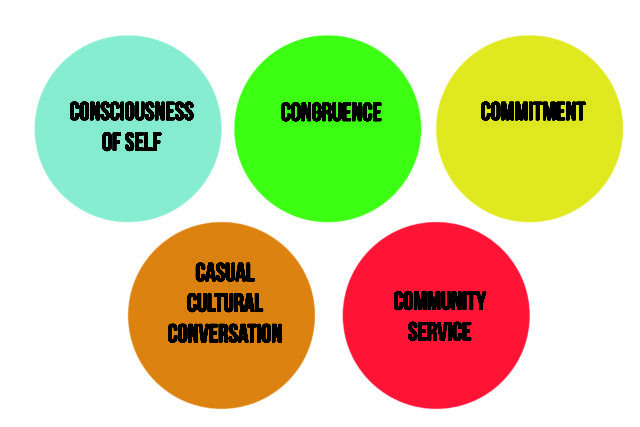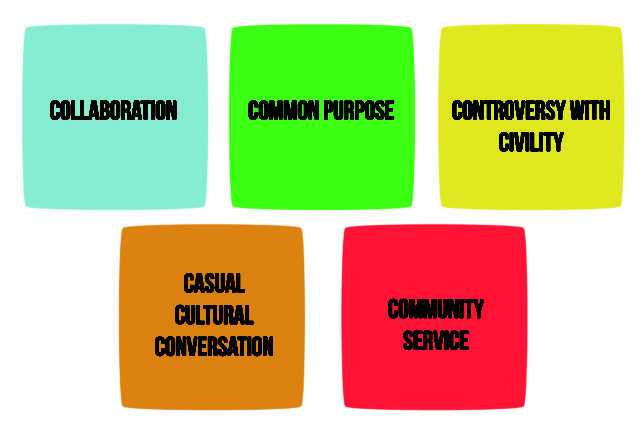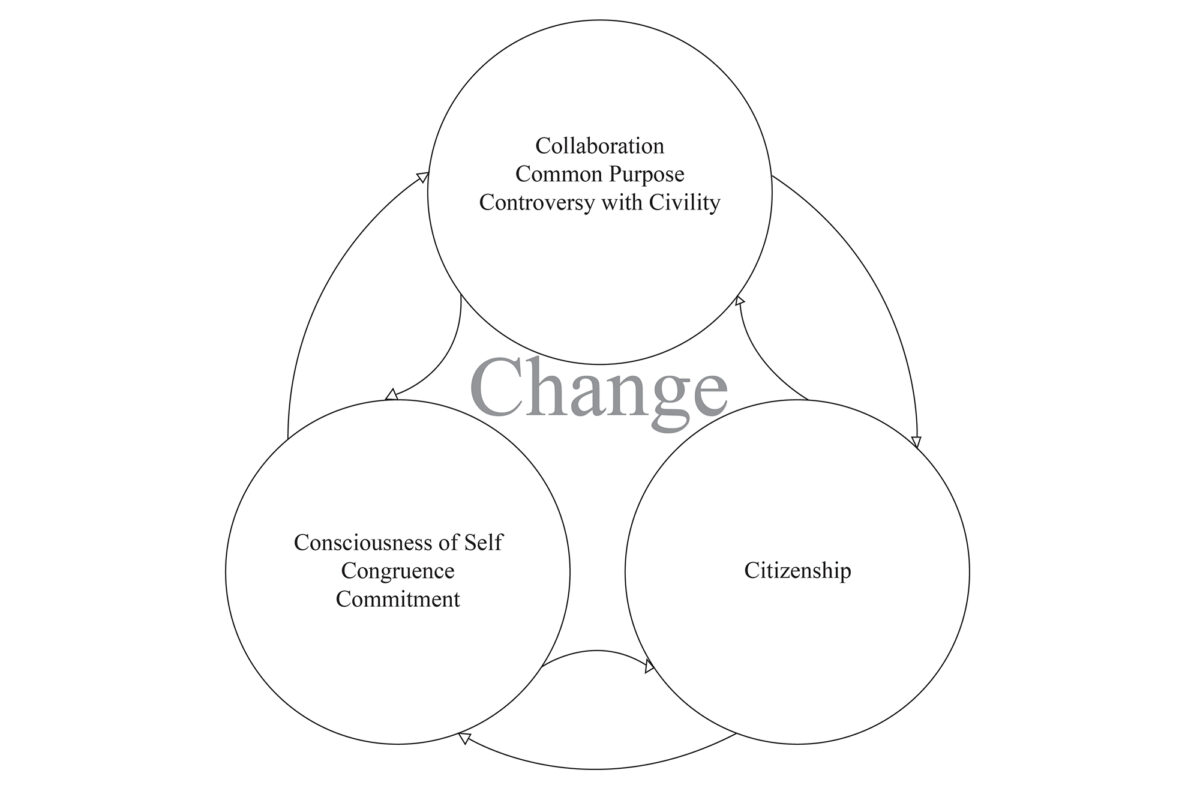Leadership Development
CU LEAD
Clarke’s leadership development program, CU LEAD, is based on the Social Change Model of Leadership Development, which approaches leadership as a purposeful, collaborative, values-based process that results in positive social change. There are two primary goals to the model.
- Enhance student learning and development; more specifically, to develop in each participant:
- Self-knowledge
- Leadership competence
- Facilitate positive social change; that is, undertake actions that will help the community function more effectively and humanely.
There are seven core values/dimensions that synergistically become leadership for social change; these are the “Seven Cs.”
Citizenship, Collaboration, Common Purpose, Controversy with Civility, Consciousness of Self, Congruence, Commitment
CU LEAD is an approved Compass experience for Global Awareness & Social Responsibility. Students who complete CU LEAD within 2 academic years can receive this experience credit for graduation requirements. Contact Callie Clark or Renee Smith to sign up for this leadership experience!

The goal of the Social Change Model is to prepare a new generation of leaders who understand that they can act as leaders to effect change without necessarily being in traditional leadership positions of power and authority.
CU LEAD Program: 3 Parts
CU LEAD consists of three parts. Parts 1 and 2 consist of seminar-style sessions that educate on the various core values. Part 1 focuses on individual leadership (consciousness of self, congruence, commitment) while part 2 focuses on group leadership (collaboration, common purpose, controversy with civility). For these two parts, students complete two different seminars focused on each core value, plus one casual community conversation, and one community service event. In total, students will participate in 8 activities in order to receive their completed leadership certificate in the individual or group dimension.
In part 3, participants will draw on all the values developed in parts 1 and 2 to plan, lead, and implement a project that contributes to the common good and realizes some aspect of social change.
Participants are able to track their progress using Clarke’s interactive involvement tool, The Source. The identifiable shapes and colors CU LEAD uses to identify each of the values helps students recognize the sessions they still need to attend. Students can easily find session icons on program marketing posters around campus and mark sessions down in their planners so they never miss a needed session!

Individual Values Dimension
Consciousness of Self
The mindfulness of knowing one’s values and belief systems, strengths and weaknesses, motivations, and from where the motivations come.
Congruence
Walking the talk of your leadership, meaning practicing your beliefs in everyday actions.
Commitment
The ability to engage in something you have a passion for, following personal goals and purposes and sticking with something that is important for you to accomplish.

Group Values Dimension
Collaboration
Working effectively with other people in a shared process.
Common Purpose
The ability to come together around shared purposes, to listen, and respectfully hear what others are saying so you may modify your own perception of the purpose of the group.
Controversy with Civility
Engaging in conflict/difference in opinion in a respectful and civil manner. The group will be able to question its purposes and make deeper commitments.
Societal or Community Values
Citizenship
Being engaged in one’s community. Citizenship means you are an active participant in the processes of the groups within your life.
All of these values interact with one another. Leadership is inclusive and is a process. Working together is essential in leadership. This program empowers students to see that they’re bringing the best of themselves into leadership positions.

